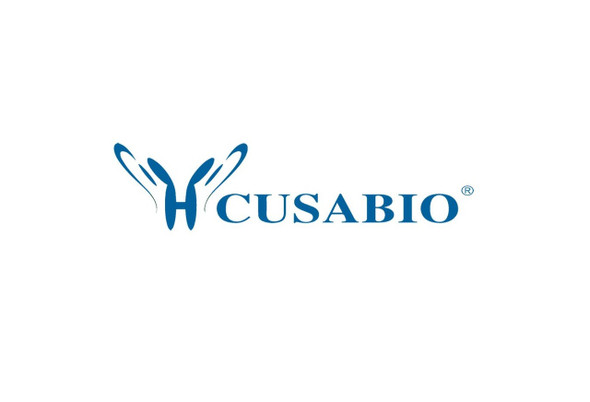Cusabio Human Recombinants
Recombinant Human Caspase-14 (CASP14) | CSB-EP004546HU
- SKU:
- CSB-EP004546HU
- Availability:
- 13 - 23 Working Days
Description
Recombinant Human Caspase-14 (CASP14) | CSB-EP004546HU | Cusabio
Alternative Name(s): Apoptosis related cysteine protease; CASP 14; CASP-14; CASP14; Caspase 14 apoptosis related cysteine protease; Caspase 14 precursor; Caspase-14 subunit p10; Caspase14; CASPE_HUMAN; MGC119078; MGC119079; MICE; Mini ICE
Gene Names: CASP14
Research Areas: Cell Biology
Organism: Homo sapiens (Human)
AA Sequence: KDSPQTIPTYTDALHVYSTVEGYIAYRHDQKGSCFIQTLVDVFTKRKGHILELLTEVTRRMAEAELVQEGKARKTNPEIQSTLRKRLY
Source: E.coli
Tag Info: N-terminal GST-tagged
Expression Region: 153-240aa
Sequence Info: Full Length of Mature Protein
MW: 37.2 kDa
Purity: Greater than 90% as determined by SDS-PAGE.
Relevance: Non-apoptotic caspase involved in epidermal differentiation. Is the predominant caspase in epidermal stratum corneum . Ses to play a role in keratinocyte differentiation and is required for cornification. Regulates maturation of the epidermis by proteolytically processing filaggrin . In vitro has a preference for the substate [WY]-X-X-D motif and is active on the synthetic caspase substrate WEHD-ACF . Involved in processing of prosaposin in the epidermis . May be involved in retinal pigment epithelium cell barrier function . Involved in DNA degradation in differentiated keratinocytes probably by cleaving DFFA/ICAD leading to liberation of DFFB/CAD .
Reference: Multiple pathways are involved in DNA degradation during keratinocyte terminal differentiation.Yamamoto-Tanaka M., Makino T., Motoyama A., Miyai M., Tsuboi R., Hibino T.Cell Death Dis. 5:E1181-E1181(2014)
Storage: The shelf life is related to many factors, storage state, buffer ingredients, storage temperature and the stability of the protein itself. Generally, the shelf life of liquid form is 6 months at -20?/-80?. The shelf life of lyophilized form is 12 months at -20?/-80?.
Notes: Repeated freezing and thawing is not recommended. Store working aliquots at 4? for up to one week.
Function: Non-apoptotic caspase involved in epidermal differentiation. Is the predominant caspase in epidermal stratum corneum
Involvement in disease: Ichthyosis, congenital, autosomal recessive 12 (ARCI12)
Subcellular Location: Cytoplasm, Nucleus
Protein Families: Peptidase C14A family
Tissue Specificity: Expressed in keratinocytes of adult skin suprabasal layers (from spinous layers to the stratum granulosum and stratum corneum) (at protein level). Expressed in keratinocytes of hair shaft and sebaceous glands (at protein level). In psoriatic skin only expressed at very low levels (PubMed:11175259). The p17/10 mature form is expressed in epidermis stratum corneum, the p20/p8 intermediate form in epidermis upper granular cells of the stratum granulosum (PubMed:22825846).
Paythway:
Form: Liquid or Lyophilized powder
Buffer: If the delivery form is liquid, the default storage buffer is Tris/PBS-based buffer, 5%-50% glycerol. If the delivery form is lyophilized powder, the buffer before lyophilization is Tris/PBS-based buffer, 6% Trehalose, pH 8.0.
Reconstitution: We recommend that this vial be briefly centrifuged prior to opening to bring the contents to the bottom. Please reconstitute protein in deionized sterile water to a concentration of 0.1-1.0 mg/mL.We recommend to add 5-50% of glycerol (final concentration) and aliquot for long-term storage at -20?/-80?. Our default final concentration of glycerol is 50%. Customers could use it as reference.
Uniprot ID: P31944
HGNC Database Link: HGNC
UniGene Database Link: UniGene
KEGG Database Link: KEGG
STRING Database Link: STRING
OMIM Database Link: OMIM









